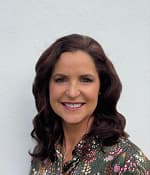
We always work to ensure that NHS treatment is accessible for the most vulnerable in our society, absorbing costs where possible and trying to stay the course for those who need it most. Yet the level of underfunding for almost all treatment codes in the Statement of Dental Remuneration is such that it feels like we are being forced out of NHS dentistry.
But much like Sisyphus, condemned for eternity to push a rock up a hill only for it to roll back down again, we will not give up. We will continue to speak up on behalf of our profession and keep pushing for a justly funded, quality service for the sake of our patients who depend on the NHS for dental care. At the same time, to ensure the survival of our practices, we are committed to supporting all practitioners, including those making plans independent of NHS dentistry.
The agenda for our first NIDPC meeting of 2023 was built around two key items: NHS contract reform and methods to support colleagues who are increasing their provision of private dentistry.
Addressing contract reform challenges
At our meeting on Friday 20 January, we were pleased to welcome Michael O'Neill, Head of General Dental & Ophthalmic Services at the Department of Health. In answering questions pooled from the Dental Practice Committee and Local Dental Committees (LDCs) on contract reform and the expenses element of the Doctor and Dentists Review Body uplift, there was a robust, yet respectful exchange of views.
Among the issues raised was the methodology used in determining the cost of care element of the 4.5% pay uplift for General Dental Services (GDS). Traditionally a formula would have been applied to calculate the cost aspect of the annual fee uplift. Despite the Department being fully aware of the difficulties practices have been facing, the formula, which would have resulted in a slightly higher uplift, was abandoned in favour of a lesser blanket 4.5% uplift.
We followed Friday's meeting with a written request to Michael O'Neill, copying in Permanent Secretary Peter May and Chief Dental Officer Caroline Lappin, to further discuss the subject. We understand the problems enveloping the Department of Health, the Executive, and the devolved administration in general, but the decision made by outgoing Minister Swann to ignore soaring costs of care on the grounds of departmental affordability is an affront to practitioners.
In many instances practices spend more than they receive when caring for NHS patients, and therefore have had to restrict the amount of NHS treatments they provide. This reduces the number of claims on the NHS budget, making it appear as if there is money left over. This shows an apparent 'underspend' in the GDS budget, presenting as though dentistry does not need money, while in truth NHS dentistry is severely underfunded. A key focus for us in the coming weeks will be to press DoH to retain the projected underspend monies for 22/23 within dentistry, supporting those practitioners who are delivering Health Service care.
Supporting the growth of private dentistry
Dentists strive to provide a full range of quality dental care, using modern materials at an appropriate pace. At the same time, books must be balanced, staff must be paid, and we must keep our businesses financially viable. To achieve this, an increasing number of dentists are now moving from NHS dentistry to mixed or private practice as a necessary alternative.
Our objective is always to support members, whether they wish to continue to provide NHS dentistry, or move towards a more privately orientated business model. So, while we will continue to lobby to improve the conditions in health service dentistry, as part of the BDA three-year strategy, we plan on increasing our resources to support dentists who are making the transition to more private care.
Our current resources offer insight into private and mixed practices, and our private practice advice page which contains Northern Ireland specific advice, aimed at equipping members to navigate statutory obligations, when changing the balance between private and NHS treatment.
Looking ahead
We are here to help you navigate the difficult times ahead. From every challenge comes opportunity, and I believe we are seeing more and more practitioners considering options. We will support you moving forward in the best possible way for the individual circumstances of your practice. We are pressing hard for as much as possible of the £6.3million underspend to be redistributed to practices who, despite the prevailing economic pressures continue to provide NHS dentistry. We want to ensure our members are fully informed and expertly supported to make good business decisions that are right for their businesses that benefit patients. To this end we will be as transparent as possible about the outlook for NHS dentistry.
The NI Branch Programme will also support you in your journey. Philip McLorinan our branch president has put together an excellent CPD Programme for 2023. Many of these CPD events are directly relevant to the challenges we currently face in the GDS, so I encourage all members to attend. I thank my vice-chairs Helen Brogan and Philip McLorinan, the elected members representing each of the LDCs and all members of the committee for the tireless work and dedication shown in representing the interests of GDPs in Northern Ireland.
Finally, I welcome your views on how we can further develop the BDA range of support for dentists who are planning to increase the provision of private dentistry. Whether through an event, symposium, conference or simply kickstarting the conversation in another way, we are determined to support our practitioners. Please email me with your thoughts and suggestions so that support can be tailored to where you need it most.

